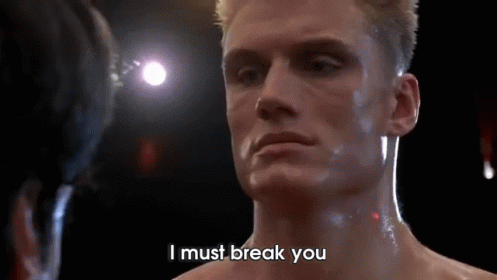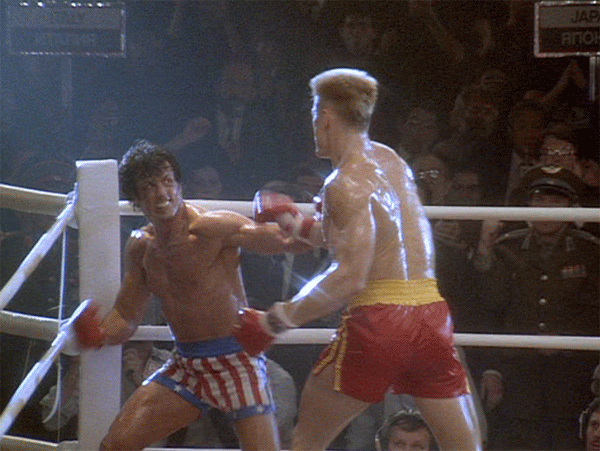TIPS FOR TAKING THE SCS
So you’ve decided to take the SCS. Becoming a board certified sports specialist is not an easy feat with less than 2% of US physical therapists holding the credential. Taking the Sports Certified Specialist (SCS) exam can be a great way to continue growing as a clinician and practice at the top of your scope, specifically if you plan on working with athletes. Additionally, obtaining the SCS designation can set you apart from other healthcare professionals. While it doesn't guarantee anything, employers who see the SCS designation will know that you took the initiative and spent a good deal of time and money to take and pass this exam. However, it's important to note that adding more letters behind your name or needing to take continuing education are not good reasons to take the SCS exam. Keep in mind, the requirements and preparation will take you the better part of a year and cost close to $2,000, not including study materials. Remember, this commitment is to just be able to sit down and take the exam!
Great reasons to take the SCS:
You want to work in sports
You want to set yourself apart from other PT’s in the field
You like a challenge and want to continue to grow as a clinician
Not so great reasons to take the SCS:
You aren’t sure about working in sports but you feel this is a good start (remember the time commitment and costs, the CSCS would be a much better start)
You’re hoping to get a few extra letters behind your name
You need the continuing education units
Preparing for the SCS can seem daunting; the sideline hours, the lack of structured materials, the ERA certification prior, and the months of studying can make it seem like an impossible task. Unlike the OCS, this exam covers a wide range of topics related to sports medicine, including medical conditions, protective equipment, and acute injury management. Having a solid understanding of the material and when to apply them in real-world scenarios is crucial to passing this exam. In this article, we will provide you with all the steps needed to take before the exam and what to expect on test day.
Sideline Coverage / Observation Hours
If you're like most physical therapists, you have limited free time and other obligations outside of work, so it's important to start gaining observation hours at least 6-8 months prior to the exam registration. I was able to get most of my hours through a local men’s basketball league along with my work at a local MMA gym. Sideline coverage hours can be obtained in several ways and the ABPTS has listed them out on their site and through their candidate guide. One way to do this is by reaching out to local high school athletic directors for possible sideline observation during practices and games. Another option is to contact local youth club organizations, adult leagues, or volunteering at medical tents at endurance races. MMA/martial arts gyms are also great places to volunteer, as fighters are constantly getting injured and practice is typically year round. Just make sure to bring a liability waiver form with you to protect yourself. By being proactive and seeking out opportunities to gain observation hours in the months prior, you won’t be scrambling last minute trying to obtain hours.
Acute Management of Injury and Illness Certification
Obtaining your emergency medical response certification is required in order to take the SCS exam and with good reason; DPT programs do not cover much, if any, sideline or emergent management of acute injuries. Having the skills and knowledge to provide emergent care is crucial when working in sport, as injuries are inevitable and can mean the difference between life and death for an athlete.
There are a few options that satisfy the requirements including having your ATC or EMT license and the ABPTS has a full list of accepted courses at the link here.
Preparing for the scs exam
As mentioned previously, the exam covers a wide array of topics so creating a plan on how to cover the material and prepare for the big day is vital. There are a few exam preparation courses available for the SCS that provide the material in a structured format. These aren’t cheap courses, they have all been shown to have high pass rates for those taking the exam and well worth the investment.
Study Material for the scs
Here are some of the most recommended materials available for the SCS:
MedBridge SCS prep course (included in an annual membership of $275-325 per year)
EIM SCS Test Prep Course for $600
AASPT Sports Certified Specialist Preparatory Course ($756-$1400)
While I can’t speak to all of the courses, I will say so much of the AASPT material was on the exam itself which makes sense since they write the exams. I also used the Medbridge exams but didn’t spend much time on the lectures due to the large amount of time required to go through all of the videos.
My study process
My first step was creating a 16 week study outline covering one chapter each week. You may need more or less time based on your learning style but I wanted plenty of time to review the material and not cram closer to the exam day. I took one practice exam every four weeks. While the Medbridge practice exams don’t perfectly reflect the materials on the exam, they are great for developing your mental stamina. If you’ve been out of school for some time, sitting for a 200 question/seven hour exam can be mentally exhausting. These practice tests are great for covering the wide array of topics that will be on the SCS as well as mimic the timed aspect of the exam.
The day of your exam will be similar to when you took the NPTE. You’ll have 200 questions divided into 50 question blocks. They will give you a 2 ten minute breaks as well as a 30 minute break after the 2nd block. I would highly recommend you use as much of your breaks as you can; get some movement in, have a snack, and get some air. Take your time with each question and try not to rush through the exam; you’ve spent months preparing for the exam, what’s an extra hour.
Compared to the OCS there is much less nuance to each question within the SCS exam. With OCS questions, you can make an educated guess and even if you don’t have the latest meniscal lesion CPG memorized. With the SCS exam, the questions are completely different and may present like this:
A 10yo wide receiver walks off the sideline to the sports physical therapist complaining of headache, abdominal pain, nausea, and appears confused. The athlete reports he had a headache yesterday and his mom gave him aspirin. What is the most likely diagnosis?
A. Splenomegaly
B. Reye’s Syndrome
C. Second impact syndrome
D. Cholecystitis
Technically any of the answers could cause the symptoms but B would be the correct answer due to the reference to aspirin consumption (even if this isn’t how it would typically present in real life).
taking the scs
Walking into the exam I felt good. I covered all of the material multiple times and I scored 75 on the last practice test. I’m not a confident test taker and I struggled with test anxiety throughout PT school but I felt great. The first few questions went smoothly, I felt like I had the right answers. There were some exam questions where I found myself at a loss, unsure of what they were asking or how to approach them. Even worse, none of the answers seemed to make any sense. Most, if not all, test takers will go through this. I tried not to dwell or spend too much time stressing over these questions and just move forward. Despite a few setbacks, I finished the exam within six hours completely depleted and needing a strong drink.
Coming out
Walking out is a very weird feeling. On one hand, it feels like a huge weight has been taken off your shoulders. You have your free time back, no more studying, practice exams, the stress of the exam date slowly approaching; you’re free! On the other hand, you have no idea how you did and you have three grueling months to wait to find out if you passed. If you walk out feeling completely defeated and feeling like you failed, you aren’t alone. Everyone I know who’s taken the SCS walks out of the testing center feeling like they failed and consider it one of the toughest exams they’ve ever taken but every one of those people has SCS behind their name now.
Becoming a board certified specialist is a challenging, but rewarding process. Few things can compare to the feeling of opening up your exam results, seeing that you have passed, and realizing that your months of dedication and hard work have paid off. Although the SCS exam may seem daunting, it's important to remember that many other therapists have successfully taken and passed the exam with the right preparation, and there's no reason why you can't do the same.
about the author: Naveed Shan
When Naveed isn’t picking up heavy things, you can probably find him helping others. As an Enneagram type 2, he thrives in environments where he is able to use his skills to improve the lives of others. Between working as a PT in the ED, an S&C coach for MMA athletes, and a performance PT at a local outpatient clinic, Naveed still finds time to help those who have helped him. He has Jess to thank for years of mentoring and now he’s able to pay it forward by helping out with Rehab Code.














